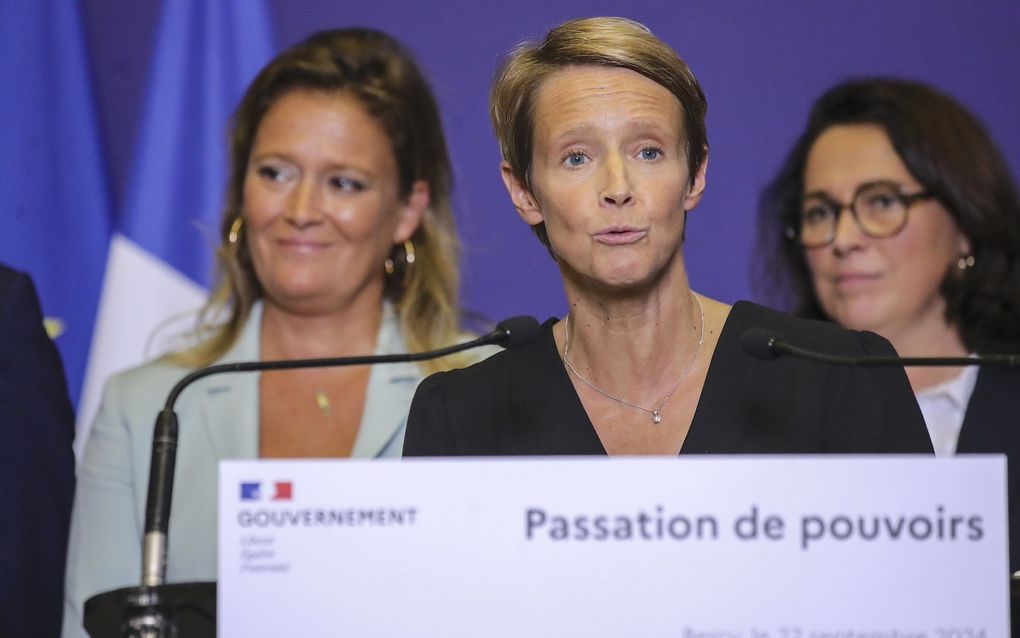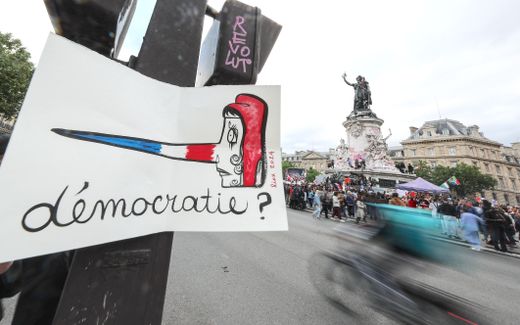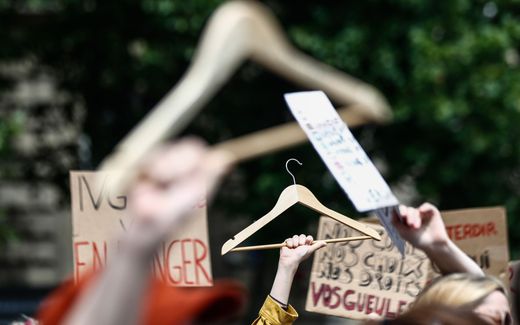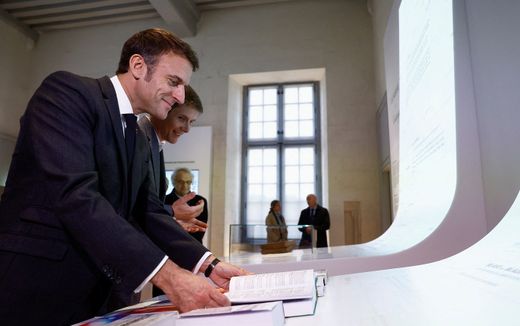Why President Macron said No to a Christian as family minister

Laurance Garnier, the new Secretary of State for Consumer Affairs. She could not become Minister of Family Affairs because of her Christian views on marriage. Photo EPA, Teresa Suarez
Western Europe
French President Macron hired Michel Barnier as new prime minister in order to survive. Next week, Barnier will present his plans. It is not clear whether he will survive the ensuing debate. One reason his centre-right coalition is not popular is his appointment of ministers who cherish traditional values about sex and marriage – to the chagrin of Emmanuel Macron.
Stay up to date with Christian news in Europe? Sign up for CNE's newsletter.
The political situation in France after the recent elections in June and July is rather complex. These elections ended in a hung parliament. A coalition of left-wing parties (Nouveau Front Populaire) won the elections, President Macron’s Ensemble ended second, and Marie Le Pen’s Rassemblement National third. But all three blocks were about the same size.

After a long summer of political deadlock, Macron appointed a new Prime Minister, Michel Barnier (born 1951), a former EU commissioner and the EU’s chief Brexit negotiator.
Macron asked him to create a government of national unity, with ministers from all three blocks. Barnier, the political leader of the right-wing Républicains, failed in doing so. The left was unwilling to cooperate with members of Macron’s unpopular party, and neither did they want to be part of a government led by Barnier. Only one leftist politician was willing to join the new government (minister of Justice Didier Migaud); all the other candidates politely said ‘non’.
All other members of Barnier’s government are Macronists or Republicans. The Macronists come from the right wing of Macron’s Renaissance Party; from his own party, Barnier has chosen ministers who are regarded as ‘hardliners’.
For this reason, the leftist opposition has called the new government ‘reactionary’ and reacted with ‘profound indignation’ and ‘consternation’ to this latest episode in French politics.
Equal rights
In their view, France never had a government with so many ministers opposed to ‘equal rights’. Last weekend, at the presentation of his new team, Barnier emphasised his new government’s allegiance to all “acquired rights”, but the opposition does not seem to be very certain of this guarantee. This is caused by some new names in the team of ministers that, in the view of progressive politicians, can be seen as right-wing hardliners.
The new minister of the Interior, Bruno Retailleau, former leader of the Republican Senators, is not only known for his strong position on migration but was also the leader of the opposition against making abortion a human right (in the Constitution).

Some party members share his more conservative political views. Patrick Hetzel is one of them, a Lutheran from the Alsace, who is the new Minister of Higher Education. Two women have also displayed conservative values. Catherine Vautrin (1960), the new minister of Regional Affairs, is one of them, but the best-known is Laurence Garnier. They have spoken out against gay marriage, against the inclusion of the right to abortion in the Constitution, against a ban on conversion therapy, and IVF for lesbians.
Delicate
Garnier (1978), a Catholic, ultimately became the new State Secretary for Consumers Affairs but should have become the new Minister of Family Affairs. However, Macron thought and said that her profile was too ‘delicate’ for this position. The new Family Minister is to succeed Sarah El Haïry, who was the first female minister to make public her homosexuality and her pregnancy as a result of medically assisted procreation.
Macron objected to Barnier, appointing a politician who, as a senator, campaigned against same-sex marriage and approved regulations on children’s access to puberty blockers and cross-sex hormones as ‘families minister’. The ministerial post is highly symbolic, but when Barnier wanted to give it to Garnier, Macron slapped down his proposal. “The president does not want the new team to unravel his reforms. Garnier’s positions are the antithesis of what has been defended by previous government teams”, an unnamed former minister told the French media.
The proposal was leaked to the press, sparking howls of protest from the Left. They saw it as convincing evidence that the Barnier government was veering to the ‘far-right’.
Barnier’s new government faces serious problems, reforming the pension system and fighting the high debt rate of 5.6 per cent being the most urging of them. Motions of no-confidence may follow the presentation of his plans next Tuesday. This lack of confidence will also be the result of Barnier’s decision to appoint some ministers with traditional Christian views on sex and marriage that caused so much consternation on the left.
Related Articles









